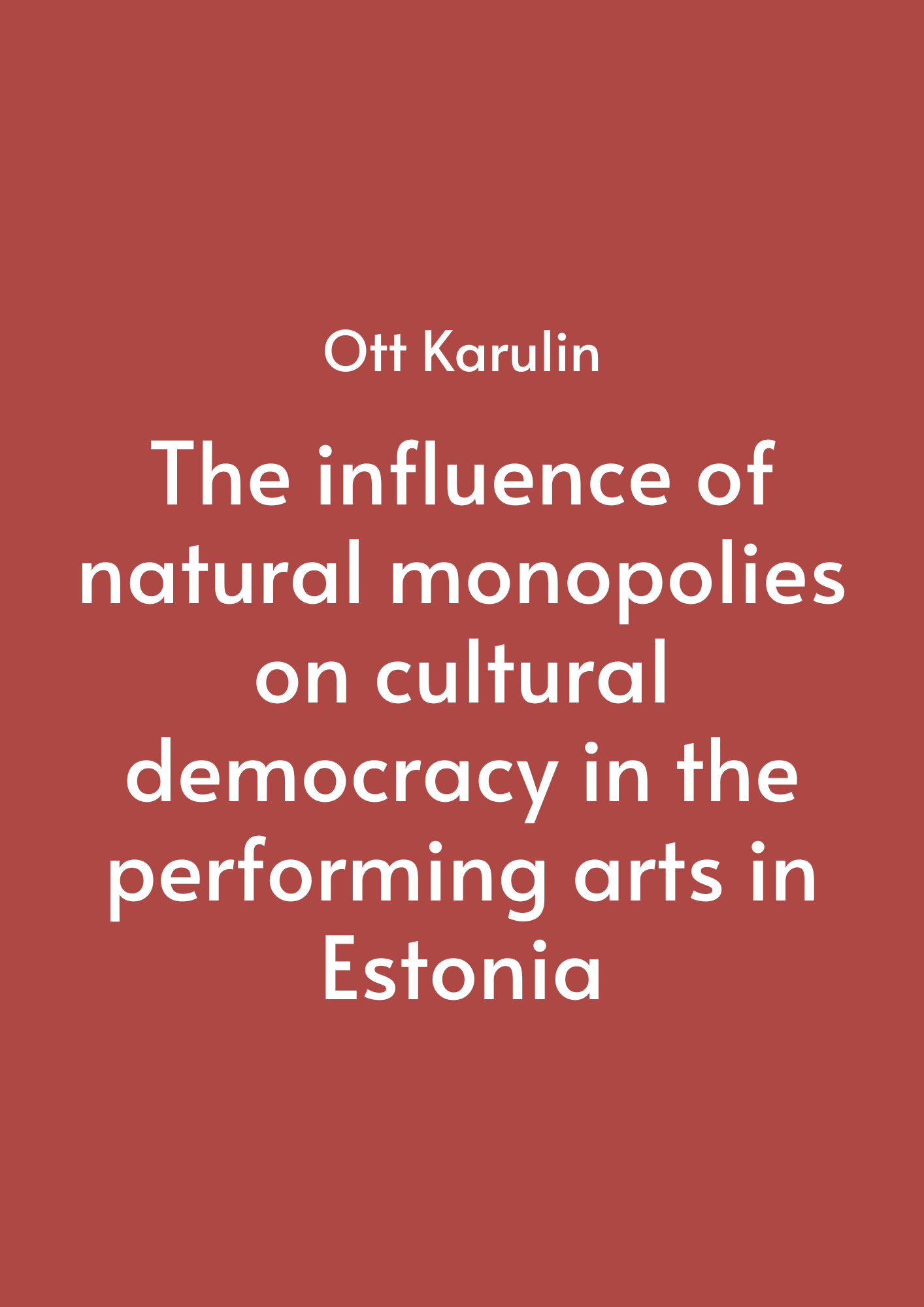The influence of natural monopolies on cultural democracy in the performing arts in Estonia
13.08.2018 17:26

Karulin, Ott 2018. The influence of natural monopolies on cultural democracy in the performing arts in Estonia. – Nordic Theatre Studies, vol. 30, no. 1. https://tidsskrift.dk/nts/article/view/106916/156680
Abstract. The core question of this article is to what extent has the state set securing cultural democracy (vs. the democratisation of culture as defined by François Matarasso and Charles Landry) in the performing arts in Estonia as its policy goal. In Estonia, the the-atre field is dominated by natural monopolies. These are companies that receive most of the financial subsidies in a respective field, making it economically non-viable for any other company to duplicate these resources. In Estonia, there are eight state-owned the-atres (called G8-theatres) that collect, on average, 60% or more of the state subsidies for theatres, the state-subsidized theatre visits and the total income from ticket sales. As stated in the Competition Act of Estonia, company or companies that earn more than 40% of the turnover of the whole market are considered natural monopolies. Therefore, the G8-theatres are natural monopolies. The question whether the Estonian state has done enough to compensate non-governmental theatres (called NonGov theatres) for the aggregation of resources to natural monopolies is one of the main focuses of this article. Here, two strategies are analysed: the activity of the Cultural Endowment of Es-tonia and the state's attempt to invest in building an alternative infrastructure for NonGov theatres.
Keywords. Cultural democracy, natural monopolies, Estonian theatre system, state subsidies for performing arts